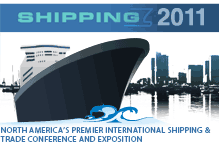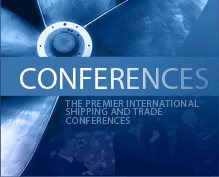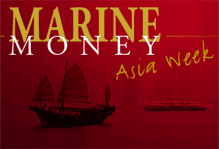
Conversation with President of U-Ming Marine Transport, Mr C K Ong
Every year, Marine Money ranks the world’s public listed shipping companies and we are very pleased to see a strong Asian showing this year with U-Ming Marine Transport (“U-Ming Marine”), Mitsui O.S.K. Lines, Precious Shipping and Courage Marine in the top 10 spots. We were very fortunate to have a chance to speak to Mr C K Ong, President of U-Ming Marine Transport for this exclusive write-up when he was in New York City to receive the award.
As a new entrant to our universe of 100 public shipping companies this year, U-Marine Marine finished 2nd in overall performance and 7th in the credit rankings. The management taken to heart the main lesson of shipping, which is recognizing its volatility.” With that in mind, it manages the company to protect the downside knowing it will survive to enjoy the fruits of the cycle. Since its listing in 1990, the company has not incurred a loss, even in the most difficult markets and has throughout that period regularly paid a dividend. Continue Reading
Capital Intermodal Sells Capital Intermodal and Xines Fleet of Containers to Textainer Group
The Singapore office of Watson, Farley & Williams LLP (“WFW”) acted for Capital Intermodal Limited and its associated companies (the “Capital Group”) in the sale and transfer of the management rights of Capital Group’s 156,000 twenty-foot equivalent unit of container fleet to Textainer Group Holdings Limited (“Textainer”). The Shipping & Intermodal Investment Management (“SIIM”) team of DVB´s Investment Management division was advising the Capital Group. Continue Reading
DBS Finances Oiltanking Odfjell Terminal Singapore
Oiltanking Odfjell Terminal Singapore Pte Ltd has signed a 6 year syndicated term loan facility of SGD 200 million (USD 138 million) via a club deal by DBS Bank Ltd, Calyon, and Oversea-Chinese Banking Corporation Limited. DBS Bank Ltd was the sole Bookrunner. The proceeds from the 6 year facility will be used to refinance existing loans and to finance the company’s expansion project on Jurong Island. OOTS is one of the very few companies in Asia who has been able to successfully tap the syndication loan market for a facility with tenor of more than 5 years.
Oiltanking Odfjell Terminal Singapore Pte Ltd is a 50/50 joint venture between Oiltanking GmbH and Odfjell SE. OOTS, incorporated in December 1999, owns and currently operates a 226,000 cubic metre (cbm) chemical storage terminal in Jurong Island.
BTMU Supports Trada Maritime
Trada Maritime has successfully secured USD 35 million from Bank of Tokyo-Mitsubishi (“BTMU”) for the acquisition of new vessels this year. The Indonesian shipowner hopes to secure additional loans from another foreign bank and two Indonesian banks for more ship acquisitions. Local media reports also suggest that the company is planning to issue bonds worth 1.5 trillion rupiah (USD 150 million) next year for capex needs and has an ambitious plan to spend USD 315 million to purchase vessels over the next five years. Last September, Trada made its debut on the Indonesia Stock Exchange and raised Rp 500 billion (USD 54 million). The management’s ability to execute its expansion plan in today’s economic downturn will soon be put to the test.
NOL Rights Issue
With the strong support from state-owned Temasek Holdings, Neptune Oriental Lines (“NOL”) announced on Monday that its USD 985 million rights issue has been fully taken up. Looking closer at the numbers, over 97% of the total rights shares were subscribed by the existing shareholders (including Temasek), and the remaining will be allocated to shareholders who had applied for additional rights shares. The excess applications of 81 million shares represent 7.3% of the total rights issue or 2.58 times of the rights shares that were previously not taken up. NOL says preference will be given to the rounding of odd lots, and the Directors and substantial shareholders (including Temasek) will rank last in priority. The success of this massive offering will not be possible if not for Temasek’s commitment in underwriting the entire rights issue. DBS, HSBC, JP Morgan and Morgan Stanley were the lead managers of this issue.
In the latest report on NOL, J.P. Morgan says there is “limited downside to NOL” due less concerns about its balance sheet risks following its recent rights issue but there is better value in OOIL given the former’s cheaper valuations and longer term upside from its property development business in China.
Tufton Oceanic Completes First Distressed Portfolio Acquisition…
In the past few months, there has been a lot of talk on whether private equity firms will be able to provide the much needed financing support for the shipping industry. As we understand, a number of private equity firms are in the process of raising money while those who have the cash are still largely sitting on the sideline. We are very pleased to hear that fund management firm Tufton Oceanic has completed full acquisition of Allocean Charters (Singapore) Pte. Ltd. (“ACS”), together with SIF Limited, a private investment vehicle specialising in asset-backed investments.
Tufton says ACS fleet is currently valued at approximately USD 250 million and is comprised of nine anchor handling tug supply vessels, two Aframax tankers, two 1700-TEU containerships and a Supramax bulk carrier. Twelve of the fourteen vessels have long-term charters. The acquisition cost was not revealed. Continue Reading
COSCO Cancels at Its Own Yard
Meanwhile, a rather intriguing development started to unfold at COSCO. COSCO Corporation – the Singapore listed shipbuilding arm of the Chinese shipping conglomerate has announced this week that its parent COSCO Group has out-rightly cancelled eight 57,000 dwt bulk carriers and re-scheduled the delivery of another three bulk carriers of the same size. The cancellations from the parent caught analysts by surprise and many have expressed concerns over the financial impacts on the shipbuilder. COSCO Corporation says the buyers will not pursue the late delivery claims and all deposits will be returned. The total value of the cancelled orders is SGD 298.7 million (USD 205 million).
The three re-scheduled vessels that were supposed to be delivered between June and December last year will be delivered August 2009 and October 2009. Considering that the delivery was long overdue and there were no prior disclosures on the delays, investors have ample reasons to worry about the shipyard’s transparency.
All Eyes on China
In the last edition of Marine Money Asia, we reported that Yantai Raffles has secured USD 150 million from China Development Bank. This week, we have another transaction that involves a Chinese bank supporting Chinese shipping interests. Bank of China (“BOC”) has sealed a cooperation agreement with state owned China State Shipbuilding Corporation (“CSSC”).
Under the terms of the agreement, BOC will provide CSSC a credit line of RMB 80 billion (USD 11 billion) to support the latter’s businesses in shipbuilding and ship repair. In addition, BOC will leverage on its buyer credit business to support CSSC’s exports. BOC has been an instrumental player in the development of the Chinese shipbuilding industry. All in all, the bank has provided domestic shipbuilders with over RMB 130 billion (USD 19 billion).
Just what the Doctor Ordered!
Just a few short weeks ago, Capital Link launched a series of maritime stock indexes to track the performance of U.S. listed shipping companies. There is an all-inclusive main index as well as various sector indexes.
The indexes are calculated daily and are based on the market capitalization weighting of the stocks in each index. All U.S. companies are included in the main index, the Capital Link Maritime Index and individually may be included in the sector index, in which it primarily operates, as well as the mixed fleet or MLP indices. By definition, companies that operate at least 60% of their total fleet in a single sector are included in that sector index. Companies that operate a minimum of one third of their total fleet in other sectors are included in the mixed fleet index. We also appreciate the ability to opt out noting that Aegean Marine Petroleum correctly in our view chose not to be included in the tanker sector. The creation of an MLP index provides an interesting means of monitoring the performance of these special vehicles. Reflective of its focus on the U.S. universe, some of the sectors provide relatively few data points thus raising a question about the quality of the measure. The list of companies and their placement in the indices is included herein.
Rule B Gets More Complicated
Rule B attachments in New York continue to be an arrow in the quiver of those in the midst of maritime disputes, and while the numbers are down slightly lately, the overall number of Rule B attachments continues to be significant. Basically the courts are working with the fairly recent City Bar Associations “model” Rule B attachment order, which may forestall the more frivolous claims. The ability to attach funds in NY on the basis of a claim, as yet untried, is a powerful tool, unchecked, it is akin to terrorist weapon, and used properly it drives solutions. As the road ahead gets bumpy we suspect a great many more of our readers may know more about the Rule than they care to.







